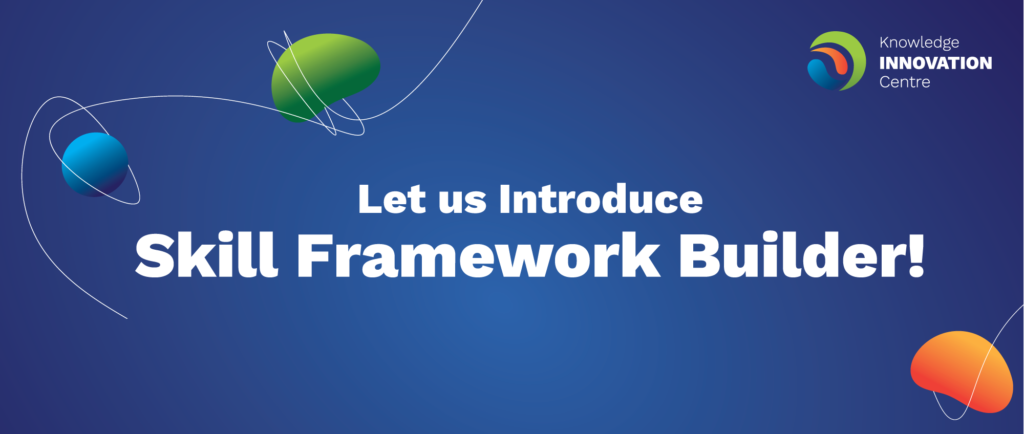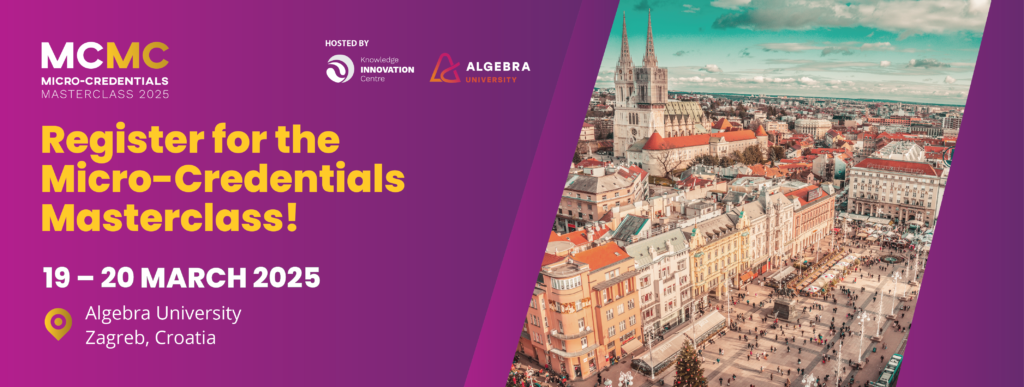Making skill management better: KIC’s integrated toolbox

In today’s changing job market, skills are the new currency. The KIC has built useful tools that offer a fresh approach to skill management. The Skill Framework Builder is available now. No matter if you’re a small business, a large company, or a school, it’s a free and powerful tool. You can use it to find, build, and manage skills.
Digital skills: The new currency for success in a connected world

Digital skills are no longer optional. They shape how we live, learn, work, and connect. They’re essential for economic growth and social progress.
Without them, we fall behind. With them, we can grow, thrive, and drive progress. In today’s world, success—both personal and professional—depends on them.
The EU is actively addressing the digital skills gap. Yet, progress is slow, and the EU must speed up its efforts to remain competitive on the global stage.
Advancing digital education
The European Digital Education Hub (EDEH) is driving change in digital education. The Hub has wrapped up its third – and final – year, and we’re proud of what we’ve achieved together. Next, we’ll grow more. We’ll expand collaboration and innovation in digital education.
If you too are active in digital education, come and be part of the movement.
Join us at the 2025 Micro-credentials Masterclass in Zagreb!

If you’re passionate about discussing innovation in learning, we’ve got an event you don’t want to miss. Registrations are open for the Micro-Credentials Masterclass, taking place from 19 to 20 March 2025.
The MCMC has attracted thought leaders, practitioners, innovators and policymakers working to improve the flexibility and responsiveness of educational systems.
This event is set for everyone to be able to network, connect and learn from each other as experts in their field.
LCAMP Alliance: Shaping the future of advanced manufacturing
In today’s fast-evolving manufacturing landscape, the importance of innovation, collaboration, and specialised training has never been greater. The Learner Centric Advanced Manufacturing Platform (LCAMP) Alliance stands at the forefront of this transformation.
LCAMP is a collaborative network funded by the European Union that brings together Vocational Education and Training (VET) providers, industry stakeholders, and learners within the advanced manufacturing ecosystem.
Becoming a member of the LCAMP Alliance connects your organisation with a network of like-minded professionals, enabling access to resources and activities tailored to elevate skills, knowledge, and global competitiveness within the manufacturing sector.
Join our online community on inclusion, diversity, equity and access in education
The alliED Network for Inclusion in Education is a public LinkedIn group for education practitioners and other experts developing capacity in the areas of inclusion, diversity, equity, and access in higher education.
Joining the alliED Network on LinkedIn is for anyone who wants to share their experiences with implementing IDEA practices at the institutional, faculty, or policy level.
The Knowledge Innovation Centre is proud to lead this Community of Practice and the dissemination of the project. It is committed to ongoing dialogue, resource sharing and professional development in education.
Revolutionising skill matching with LCAMP’s Skill Finder tool
The KIC, through the LCAMP project, has made a big step toward advanced manufacturing and skill alignment. It developed the Skill Finder tool. A tool that linking employers with talent and connects employers and educational institutions. Skill Finder aims to help employers define job requirements. It also seeks to help educational institutions align their curricula with industry demands. Skill Finder matches specific skills through a fast, efficient process that reduces mismatches in job placements.
Adult education in an age of lifelong learning
Adult education is not merely a channel for career advancement; it remains one of the fundamental aspects through which individuals develop to be functioning parts of society and support economic security.
With demographic changes, technological development and labour market requirements changing rapidly across Europe, there is an even stronger case for high-quality flexible adult learner education (ALE).
Through initiatives like RALExILA, Europe is taking meaningful steps toward an interconnected, high-quality adult learning system that aligns with the European Education Area’s vision.
Updates on the Mov-e project: Advancing online physiotherapy education
The Mov-e project aims to create a 15-hour, open-access course that blends techniques for musculoskeletal dysfunction with patient communication skills. By emphasising the value of patient-centred care and giving them the tools to do this, we aim to empower future physiotherapists, students, teachers, and healthcare workers.
The Mov-e project aims to serve as a model for future courses in physiotherapy.
We also strongly focus on preparing students and professionals to meet the diverse needs of patient groups.
Embracing inclusive student engagement in tertiary education
To address inclusivity in universities, colleges, and vocational education and training (VET) schools, the KIC has initiated and actively participated in projects, funded through the EU’s Erasmus+ framework.
These initiatives focus on identifying and overcoming structural and cultural barriers to student engagement, aiming to create a more inclusive environment.
By breaking down structural and cultural barriers, offering flexible and visible engagement opportunities, and involving students in decision-making processes – including those from non-traditional and underrepresented backgrounds – tertiary education institutions can create a truly inclusive and supportive learning environment.
